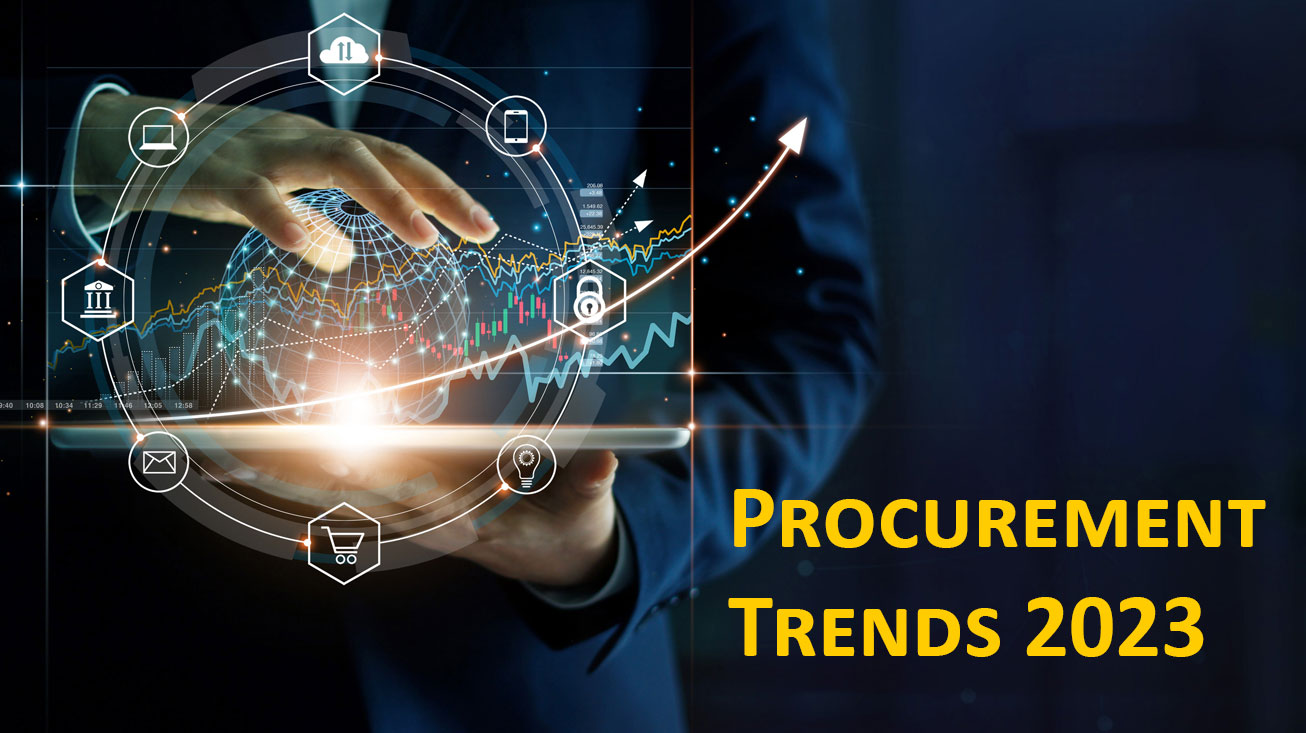
Supply chains and procurement were not as complex as they are now, especially since the pandemic. The Covid-19 pandemic highlighted the already existing loopholes in the supply chains which made them fall apart rapidly. Throughout 2020, the procurement industry struggled with dealing with a host of issues related to supply chain disruptions. 2020 and 2021 were the years of chaos in the supply chain industry. The recovery road was arduous. The organizations that got through these times got through by being resilient and adaptive to technology.
2022 was the year of recovery so it is no surprise that 2023 will focus on building resilient supply chains which can stand contingencies better than the pandemic. Here’s what we feel are the trends that would shape the procurement and supply chain industry in 2023.
1) Greener and more sustainable supply chainsClimate change is real and supply chains’ efforts to be more environmentally responsible means they have to focus on a more sustainable approach. This also means that they can focus on creating a supply chain strategy that is less harmful to the environment. Greenhouse gas emissions in a lot of countries are on the rise and they are making an effort to reduce these emissions by switching to green logistics.
Green logistics have started to gain traction in the supply chain of many companies. These trends affect warehousing. These warehouses can be eco-friendly and feature advanced energy management systems. These systems monitor the usage of gas, electricity, heat, water, etc. all over facilities. Such eco-friendly warehouses help consume energy and prevent excessive wastage of resources.
2) Risk mitigation and managementThe procurement industry has been under attack continually since the pandemic and even now, there is no guarantee of consistency in the supply chains globally. In a world that is so volatile and unpredictable, organizations need to develop a strategy that is resilient. For this, it is your obligation to reduce the risk as much as you can. This ensures that the supply chain stays resilient and steady even in disruptions and tough times.
Anticipating risks and disturbances and planning your risk management strategy beforehand can help organizations succeed in the event of contingencies.
3) Circular supply chains are the futureThere are one too many benefits of a circular supply chain. In a circular supply chain, manufacturers reuse discarded products for resale. Essentially, this means that many companies are choosing to break down their products and turn them back into their raw material form.
This helps to cut down costs as the organization saves up on putting together new processes in place. When your organization has a circular supply chain in place, you spend less on raw materials and enjoy a reduced risk of price volatility. Above everything else, a circular supply chain creates less waste, which reduces carbon footprint and the overall impact on the environment.
4) Increased transparency and better visibility in the supply chainPost the pandemic, it has become increasingly important for transparency and visibility in the supply chain. This can be attained through the digitization of the supply chain. In simple terms, transparency and visibility essentially mean the capacity to track components or goods from the manufacturer to the end user. These are the factors that are most crucial for managing the supply chain. More visibility into the supply chain strengthens the chain as a whole. This will also enable your organization to understand the overall state of your supply chain which guarantees easy access to data for all stakeholders, including customers and internal parties.
5) Keeping up with shorter product lifecyclesIt is common knowledge that many companies still use a single supply chain for all products, despite the differences in the products’ lifecycles. Product lifecycles are becoming shorter and supply chains need to evolve to become faster and more efficient. However, in the future, companies will have to be prepared to accommodate these varying lifecycles and remain profitable. Supply chains have to be developed and customized in a way that they accommodate these varying lifecycles.
In recent times, product lifecycles are shorter than ever and supply chains have to be resilient and adjust as time progresses. Soon, companies will also have a distinct supply chain for each product lifecycle.
6) Adopting a cloud-based procurement solutionA cloud-based solution is the future of procurement and supply chain management, just like digitization. Any company that has not automated its procurement processes has more to lose than to gain. Traditional and local procurement solutions will not suffice. To remain competitive, an organization must turn to automation and a cloud-based solution can help.
A cloud-based procurement solution is not only dependable and secure but also very effective and practical. This is because - an organization’s procurement team can access the required data at any time, from any location as all the data is stored in the cloud. Post the pandemic, this has become extremely important. A cloud solution is essential to help your company transition into an increasingly fast-paced future.
The procurement and supply chain industry is changing and managing the supply chain is not as easy as it used to be. But, advancements in technology are paving the way for newer trends and the future of the procurement industry looks bright.
Eyvo’s cloud-based digital procurement software uses state-of-the-art technology and is used by small, large, private, and public companies, regional governments, and NGOs alike. We support third-party integrations and can integrate into your existing legacy ERP or accounting system seamlessly.
Our purchasing software is modular and flexible and can be customized as per your needs. We also provide various approval limits to ensure the maximum level of transparency and visibility in your procurement process.
Be ready to take on the new challenges with Eyvo’s cloud-based digital procurement software.
Contact Us to know more!

